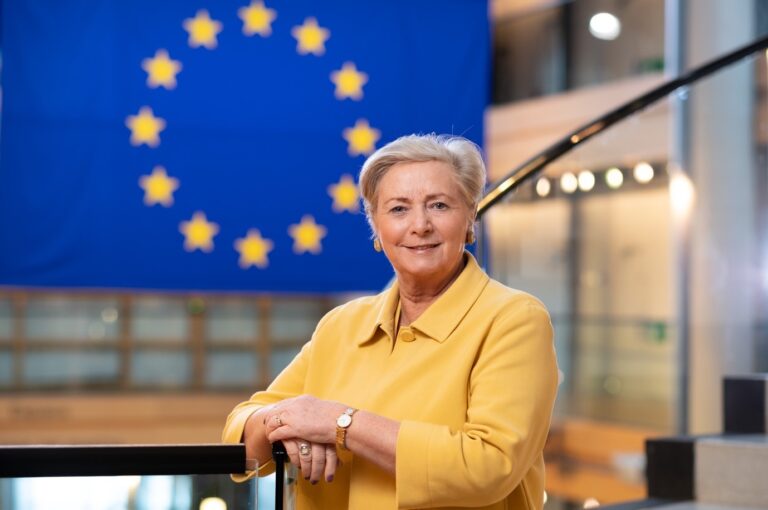Led by the Chair Robert Biedroń, the delegation attended the 68th session of the UN Commission on the Status of Women (CSW) in New York from 18th to 21st March. The CSW focussed this year on the empowerment of women and girls by addressing poverty and strengthening institutions and financing with a gender perspective. In their meeting with the Secretary-General of the United Nations, António Guterres, MEPs stressed that poverty has a female face and highlighted the importance of involving women in the development of artificial intelligence (AI). AI will continue to play a crucial role in our lives, they stressed, but as a male-driven sector, it may reinforce harmful stereotypes and create unfavourable dynamics that make it even more difficult for women to excel. They also met with the Executive Director of UN Women, Sima Sami Bahous, and a number of representatives of UN, the EU, member states and civil society.
MEPs held a well-attended side event on fostering women’s full inclusion in the economy and labour market to address poverty. The first panel discussed how to overcome the gender pay gap and pension gap, including through pay transparency. The second panel looked at aspects behind women’s poverty and means to address them, as well as tools to tackle gender inequalities. Delegates from all parts of the world engaged in the debate that followed each panel.
Robert Biedroń (S&D, Poland), said: “The EU is a global leader when it comes to gender equality and as such, it is of utmost importance that our institutions, including Parliament, participate in and contribute to important meetings like the CSW. This year’s theme is very closely connected to the work we have been doing this term in the Women’s Rights and Gender Equality Committee. At EU level, we have adopted a number of key legislative acts in this regard, such as the pay transparency directive, which aims to tackle the gender pay gap, and the women on boards directive, which will bring more equality to economic decision-making in our Union. We must share our best practices on the international stage and contribute to advancing gender equality and women’s empowerment worldwide.
Nevertheless, we are still far from achieving true gender equality, even within the EU’s borders. To address women’s poverty, there is a clear need to fully implement the principles of gender mainstreaming and gender budgeting in all of the EU’s policies and activities, something that the committee has been continuously calling for. That is even more important when it comes to the digital and green transitions, as only by acknowledging that the gender perspective must be incorporated in all policy areas, will we be able to ensure an inclusive, sustainable and healthy economy for future generations.
Parliament’s delegation has been exchanging with international partners and contributing to the conclusions of this year’s CSW. We need a strong and concrete plan for the future that works towards eradicating women’s poverty globally while strengthening women’s economic independence and decision-making. To achieve that, and to ensure gender equality across the whole EU in all other fields, we need to standardise women’s rights in our Union, so that women in all member states can enjoy the same rights and the same level of protection. We cannot allow for the current status quo to prevail, where Polish or Slovakian women enjoy fewer rights than women in France or Belgium. We know that gender equal societies are happier, fairer and more prosperous for all; it is high time we implement this knowledge in our work in the EU and foster the creation of a true Union of equality. ”
Frances Fitzgerald (EPP, Ireland), said “Women are disproportionately affected by poverty around the world, including here in Ireland. Global awareness of the increased susceptibility of women to poverty is essential, so we can act to close that gap. Reforming our care system must be at the top of our list of actions, and the implementation of the European Care Strategy which I originally proposed, is essential. The CSW is always an important moment for global policy makers to gather and to take action to improve gender equality. Far from being just a women’s issue, gender equality must be at the top of the political agenda for all leaders.”


